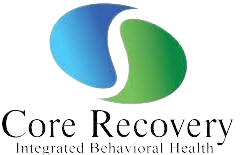What is Avoidant Restrictive Food Intake Disorder (ARFID)?
Avoidant Restrictive Food Intake Disorder is a complex eating disorder characterized by an individual’s avoidance or restriction of certain foods or types of food due to sensory sensitivities, fear of negative consequences, lack of interest in eating, or other reasons unrelated to body weight or shape concerns.

Understanding the Symptoms
Symptoms of Avoidant Restrictive Food Intake Disorder can include:
- Avoidance or restriction of certain foods or food groups based on sensory issues, such as texture, taste, or smell.
- Lack of interest in eating or low appetite, leading to inadequate nutritional intake and potential weight loss or nutritional deficiencies.
- Fear of aversive consequences related to eating, such as choking, vomiting, or experiencing a negative physical sensation.
- Difficulty eating in social settings or avoiding meals with family or peers due to food-related anxieties.
Core Recovery’s Approach to ARFID Care
At Core Recovery, we have extensive experience in providing specialized care for individuals struggling with Avoidant Restrictive Food Intake Disorder. Our programs focus on evidence-based treatments tailored to each individual’s unique needs.
Comprehensive Treatment Plans
We believe in a personalized and holistic approach to treatment. Our expert team collaborates to develop individualized treatment plans that may include:

Exposure-Based Therapy
Gradual exposure to feared or avoided foods in a controlled and supportive environment to desensitize individuals to sensory issues and reduce food-related anxieties.

Behavioral Therapies
We offer various evidence-based therapies, such as Cognitive Behavioral Therapy (CBT), Exposure and Response Prevention (ERP), and Family-Based Treatment (FBT), to address underlying issues, change behavior patterns, and support recovery.

Supported Meals
Our professionals oversee guided meals in a therapeutic setting, which focus on normalizing relationships with food and eating, as well as confronting and managing the anxieties, fears, and challenges that may be associated with eating, food, and body image.

Nutritional Counseling
Our registered dietitians work closely with individuals to expand food variety, develop strategies to overcome eating challenges, and ensure adequate nutritional intake.
Experienced and Compassionate Team
Our team consists of licensed therapists, registered dietitians, medical professionals, and support staff experienced in treating Avoidant Restrictive Food Intake Disorder. They provide compassionate care and create a safe, supportive environment where individuals can address their challenges and work towards recovery.
At Core Recovery, we are committed to empowering individuals to overcome the challenges posed by Avoidant Restrictive Food Intake Disorder. Through our specialized IOP and PHP programs, our goal is to help individuals expand their food variety, improve their relationship with food, and achieve sustainable recovery.
Contact Us Today
If you or a loved one are struggling with the effects of avoidant restrictive food intake disorder (ARFID), we’re here to help. Contact us today to learn more about our ARFID-focused programs and take the first step toward a brighter, healthier future.





 In CA By O360®
In CA By O360®







